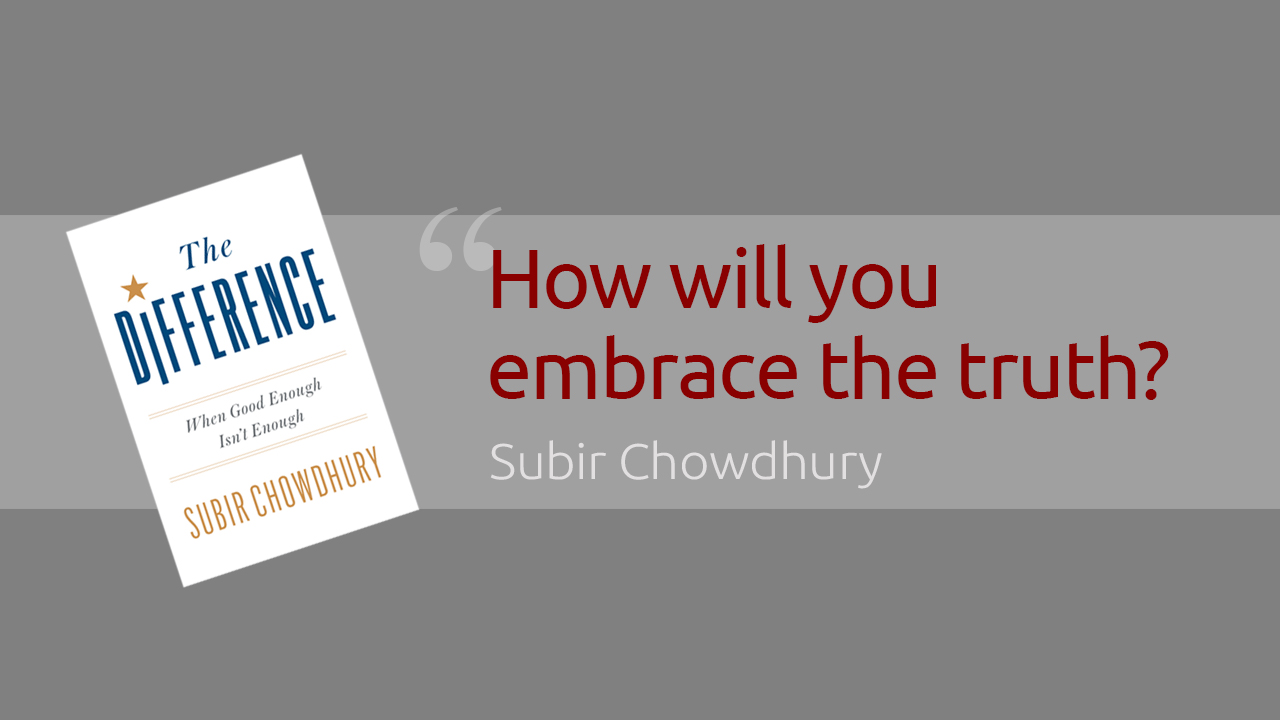The power of truth lies in our ability to embrace it. When we embrace it - all new possibilities open up to us.
Quality & Me
Subir shares short stories about what people do to make a difference everywhere they go. We can make huge contributions to the way we function as a society by standing out as an example within our own community: at work, at our places of worship, among our colleagues, friends, and family. All it takes is the courage to step up and being straightforward, thoughtful, accountable, and resilient.
A friend communicated a story to me about Alan Mulally, the former CEO of Ford.
When Mulally first joined the organization, he gathered his senior management team together to identify what needed to change at Ford.
In a nutshell, Mulally asked his team to color code their initiatives red, yellow, or green. Red meant things were in bad shape—for example, a launch date might be missed.
Yellow meant an initiative wasn’t going well, and green meant the initiative was on track. He wanted his team to be straightforward when presenting their reports so they could figure out solutions.
Everyone’s reports were nothing but green. No yellow or red in sight.
Keep in mind that Ford had lost billions of dollars.
Mulally wondered out loud how everything could be going so well while the company was losing so much money.
Mulally knew that if his team wasn’t straightforward, chances were no on else in the company would be. It was a race to the bottom. He explained that he expected his executive team to be straightforward about the problems they were having.
The reports continued to remain green. Why? Ford’s culture was the opposite of being straightforward: it was a culture of deceit, CYA—whatever term you want to use. Everyone knew there were problems, but no one had the guts to talk about it.
Then Mark Fields spoke up.
I don’t know if Mark had a sudden awakening, or just got sick of sitting through another unproductive meeting, but he described a problem his team was having, and why a new car launch would be delayed.
I’m told you could hear a pin drop. Then Mulally started applauding. Applauding! Finally, someone who wasn’t afraid of the truth. He chose to be straightforward. That action was the beginning of a new culture at Ford—it was a turning point.
You know the rest of the story—Ford was the only U.S. automotive manufacturer to emerge from the automotive crisis without filing for bankruptcy or having to accept government assistance.
The power of truth lies in our ability to embrace it.



















